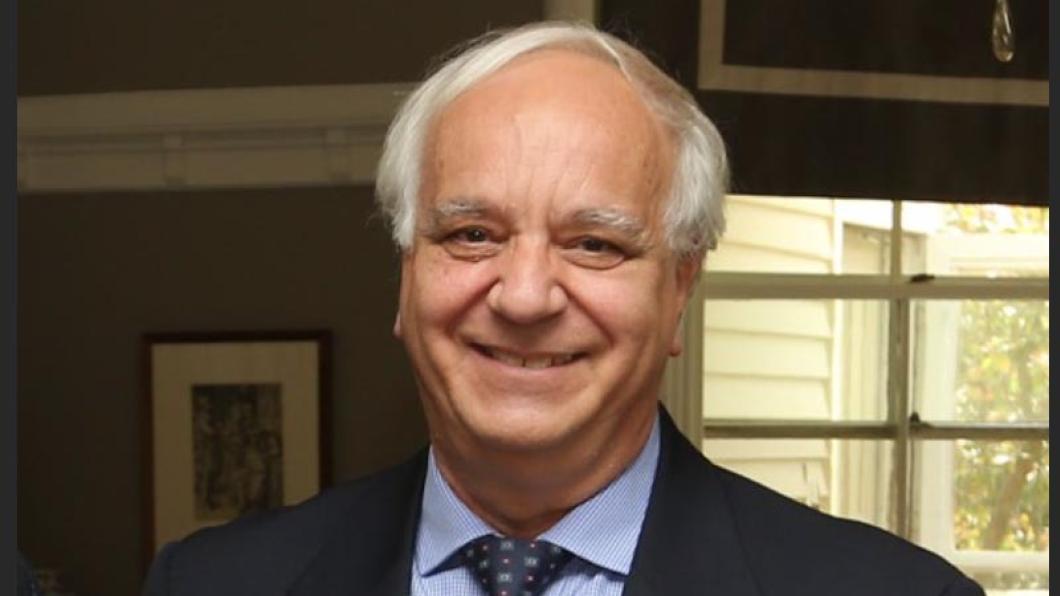
Dr. Robert Bortolussi, co-founder of MicroResearch, delivers this Mickey Milner International Professorship Lecture on strengthening local health research capacities
From Uganda to Nepal, Dr. Robert Bortolussi has travelled the globe with MicroResearch, a program he co-founded with Dr. Noni MacDonald back in 2008 to help strengthen local health research capacities.
His next stop? The Bloorview Research Institute, for the 19th annual BRI Symposium and this year’s Mickey Milner International Professorship Lecture.
The Mickey Milner keynote honours the former vice president of research at what was then Bloorview MacMillan Children’s Centre. Under Dr. Milner’s leadership, Holland Bloorview became a world leader in the development of assistive technologies for kids and youth with disabilities. The Mickey Milner keynote lecture celebrates Dr. Milner’s contributions and continues his legacy of innovation.
As he prepares to deliver this year’s keynote, Dr. Bortolussi is eager to share the innovative ways that MicroResearch is improving research capacity in countries like Uganda.
Dr. Bortolussi first visited Uganda in 2008, when he and Dr. MacDonald were invited to present a workshop to health-care professionals in Mbarara on how clinicians could become clinician scientists, integrating research and care. While there, they realised that these clinicians did not have the resources they needed to pursue research long-term.
That realisation sparked an almost two-year long journey of securing funding and volunteers from Canada to support MicroResearch initiatives. And In 2010, Dr. Bortolussi returned to Uganda to mount the second MicroResearch workshop.
Over the course of two weeks, workshop participants—including doctors, nurses, physiotherapists, and more—work in teams to identify a research question and develop a research proposal.
“The research questions are the ideas that the team, who are all local, have gauged is being significant to that local area. The idea has to be feasible, novel, ethical and relevant to their own situation,” explains Dr. Bortolussi.
While they work on their proposal, teams receive training on everything from methodologies to community engagement. The goal is to build participants’ capacity to carry out research in their local area. After the workshop, teams are eligible to apply for a MicroResearch grant to fund their research proposal. They work with volunteer coaches to build out the proposal, pursue research and eventually, submit their findings to journals.
“We say several times during the workshops that everyone has two jobs. One, to do the best you can with the resources you have, and two, to try and make it better for yourself and others,” says Dr. Bortolussi. “And you make it better by doing research and telling people about it, by publishing in a journal or giving a report to your health ministry or hospital.”
Since its inception, the MicroResearch program undertaken more than 60 workshops in 11 countries and mentored more than 1,600 participants. Almost 200 local projects have been launched in Africa resulting in significant changes to the health system in Africa and 50 publications by local researchers.
Ensuring that this research is sustainable is a top priority for Dr. Bortolussi. MicroResearch participants are tasked with identifying which of the United Nations Sustainable Development Goals their proposed project addresses, and with finding funding sources and supporters for their project in the local area.
“In Kenya, some participants convinced the government to set aside funds to support their research. That's the sustainable part of it, built into it,” Dr. Bortolussi explains.
As well as strengthening local research capacity, Dr. Bortolussi and team help empower these clinician scientists to share their knowledge. Several MicroResearch participants have gone on to graduate studies and hold teaching positions in their universities.
“In Mbarara, some of the original MicroResearch graduates are now the senior people, doing research and teaching research,” says Dr. Bortolussi.
Through his keynote at the BRI Symposium, Dr. Bortolussi hopes to share not just what MicroResearch has accomplished, but it can do, including the potential to improve care for people with disabilities in African countries by supporting small, locally focussed multidisciplinary research teams.
Interested in learning more? Register now for the 19th annual BRI Symposium held in-person and virtually from November 7 to 8.